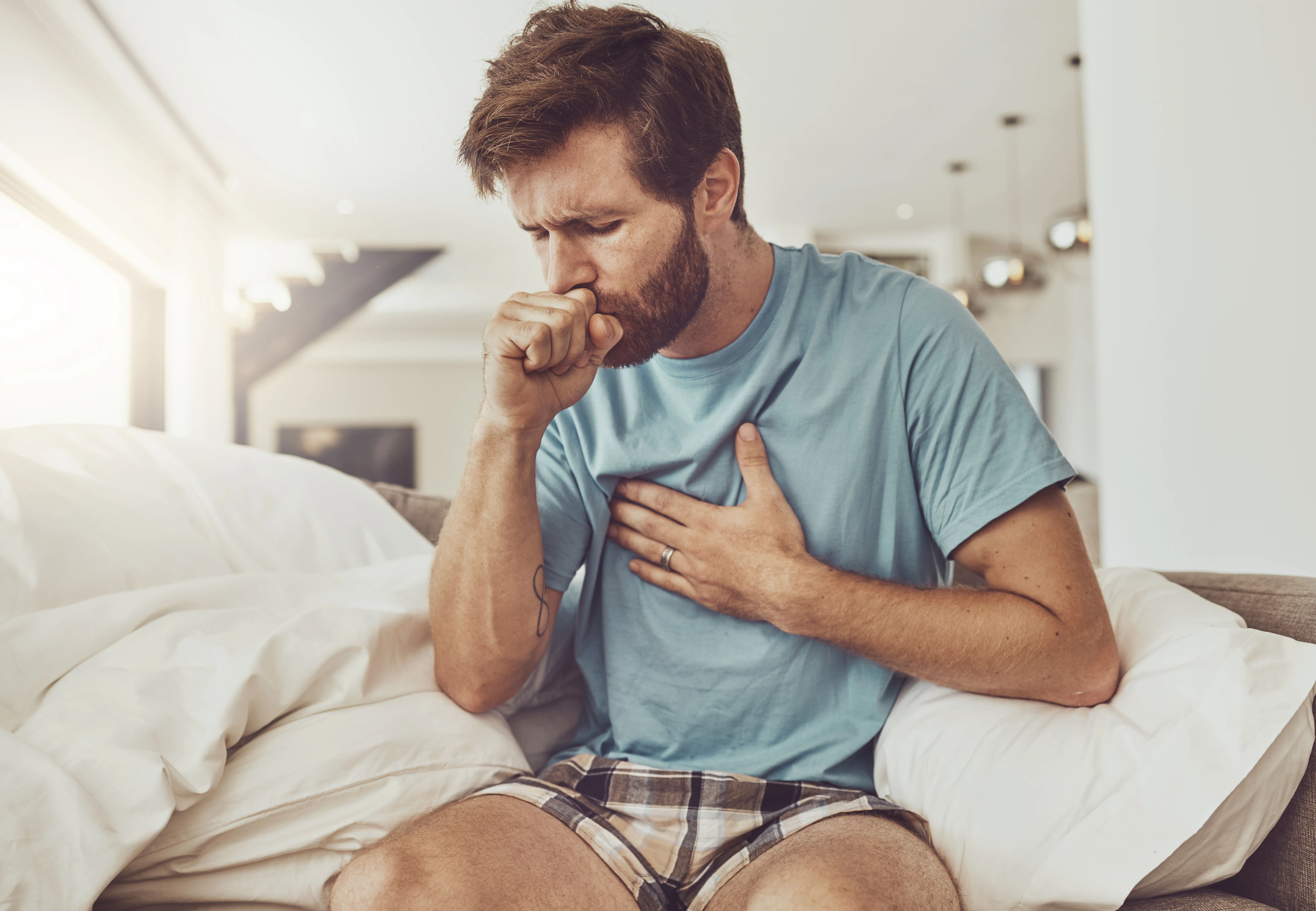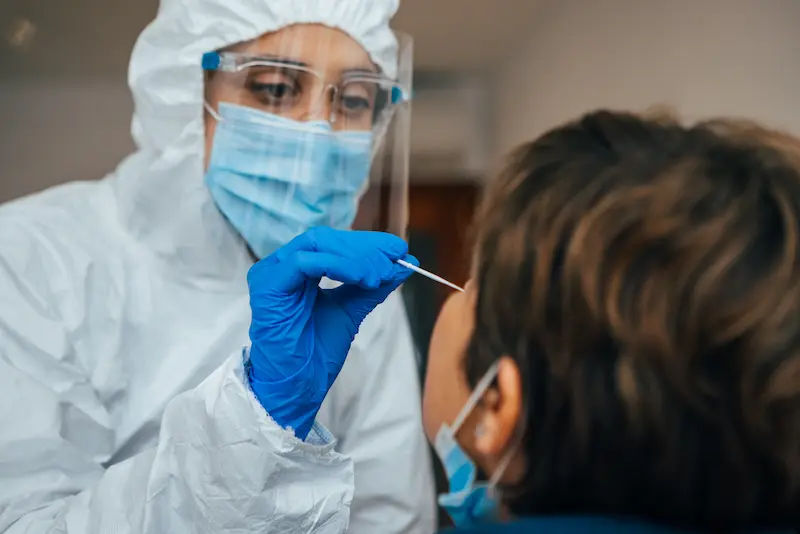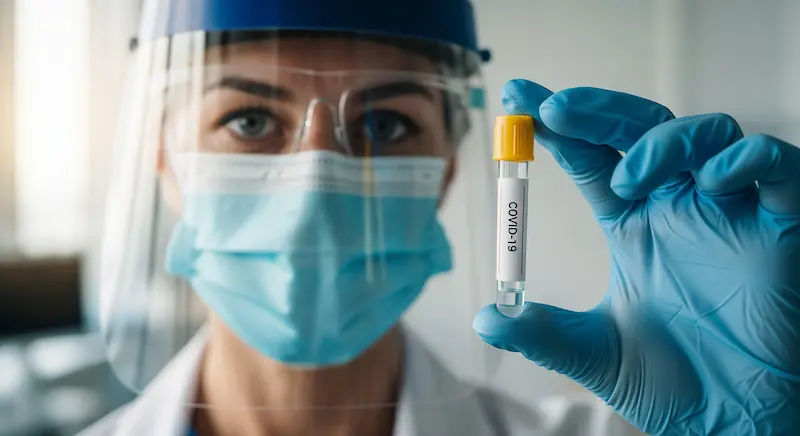Your Guide to the COVID-19 Third Dose: Eligibility, Benefits, and More
Learn about the COVID-19 third dose: who needs it, how it differs from a booster, eligibility rules, side effects, and why it’s key for stronger protection.

Written by Dr. Mohammed Kamran
Reviewed by Dr. D Bhanu Prakash MBBS, AFIH, Advanced certificate in critical care medicine, Fellowship in critical care medicine
Last updated on 13th Jan, 2026

Introduction
The rollout of COVID-19 vaccines was a monumental step in our fight against the pandemic. However, as the virus evolves and new variants emerge, questions about lasting protection have arisen. This is where the concept of an additional vaccine dose comes in. You've likely heard the terms "third dose" and "booster shot," but what do they actually mean, and are they right for you? This comprehensive guide cuts through the confusion, offering clear, evidence-based information on everything you need to know about the COVID-19 third dose. We'll break down the difference between dose types, explore eligibility criteria, discuss potential side effects, and guide you on how to get yours. Understanding this next step is crucial for making an informed decision about your health and continuing to protect yourself and your community.
What Exactly is a Third Dose?
A third dose is an additional shot of a COVID-19 vaccine given to people who may not have built a strong enough level of protection from their initial two-dose regimen. It's primarily intended for individuals who are moderately to severely immunocompromised. For these individuals, the standard two doses may not elicit a robust immune response, leaving them more vulnerable to severe COVID-19. The third dose is essentially part of their primary vaccination series, designed to help them reach a level of immunity comparable to that of the general population after two doses.
Third Dose vs. Booster Shot: What's the Difference?
This is a common point of confusion, but the distinction is important:
Third Dose: Given to immunocompromised people to complete their initial vaccination series because their immune systems didn't respond adequately the first time. It's about reaching a baseline level of protection.
Booster Shot: Given to people with healthy immune systems after their primary series (whether two doses or one dose of J&J) is complete and its protection has naturally waned over time. It's a "boost" to renew and strengthen existing immunity that has diminished.
While the shot itself may be identical, the reason for receiving it differs based on the individual's health status.
Consult a General Physician for the best advice
Who is Eligible for a COVID-19 Third Dose?
Eligibility can vary by country and is updated by health authorities like the Indian Ministry of Health and Family Welfare (MoHFW) or the CDC in the US. Always check the latest local guidelines.
Eligibility for Immunocompromised Individuals
This group is typically prioritised for a true third dose. Conditions often include:
Active treatment for solid tumors and blood cancers
Organ transplant recipients taking immunosuppressive therapy
Stem cell transplant recipients (within the last 2 years)
Individuals with moderate or severe primary immunodeficiency (e.g., DiGeorge syndrome, Wiskott-Aldrich syndrome)
Advanced or untreated HIV infection
Active treatment with high-dose corticosteroids or other drugs that may suppress the immune response
Eligibility for the General Public (Booster Shots)
For most of the general population, the additional shot is termed a booster. Eligibility has expanded significantly and often includes all adults above a certain age (e.g., 18+), particularly frontline workers, seniors, and those with comorbidities like diabetes, heart disease, or obesity.
Timing Your Dose: When Should You Get It?
For a third dose (immunocompromised): Typically recommended at least 28 days after the second dose.
For a booster shot (general public): Guidelines often recommend it after a longer interval, such as 6-9 months after completing the primary series, to allow the immune system to mature and create a stronger response to the booster.
Why is a Third Dose Recommended?
Waning Immunity and the Need for Enhanced Protection
Studies have shown that while COVID-19 vaccines remain highly effective at preventing severe disease, hospitalisation, and death, their protection against infection can decrease over time. This is known as waning immunity. A third dose or booster significantly revs up the immune system, causing a sharp rise in antibody levels—often much higher than after the second dose—restoring and enhancing protection against symptomatic infection.
Protection Against New Variants (e.g., Omicron)
The emergence of variants like Omicron, which are highly transmissible and can partially evade immunity from past infection or vaccination, underscored the need for boosted protection. Data has consistently shown that a booster shot dramatically improves vaccine effectiveness against Omicron, making it far less likely for a vaccinated and boosted individual to experience severe outcomes.
What are the Expected Side Effects?
The side effects of a third dose are generally similar to those experienced after the second shot of the primary series. They are a sign that your body is building protection. Common side effects include:
Pain, redness, and swelling at the injection site
Fatigue
Headache
Muscle pain and joint pain
Chills and mild fever
These symptoms are usually mild to moderate, resolve within a few days, and can be managed with rest, hydration, and over-the-counter pain relievers. Severe allergic reactions are rare. If you experience side effects that are severe, persistent, or concerning, consult a doctor online with Apollo24|7 for further evaluation.
The "Mix-and-Match" Approach: Can You Switch Vaccines?
Yes, this approach, known as heterologous vaccination, is both approved and effective.
Guidelines for Heterologous Vaccination
Many health authorities now allow for flexibility. For example, if your primary series was with Covishield (AstraZeneca), you could receive Covaxin as a booster, or vice-versa. Some studies even suggest that mixing platforms (e.g., a vector vaccine followed by an mRNA vaccine) can elicit a broader and stronger immune response. It's best to discuss the available options with a healthcare provider or follow the official protocol at your vaccination center.
How to Get Your Third Dose: A Step-by-Step Guide
Check Eligibility: Verify your eligibility based on the latest guidelines on the Co-WIN portal or your government's health ministry website.
Schedule an Appointment: Use the Co-WIN website or app to book a slot. You can often schedule a "Precaution Dose" or "Booster Dose" directly. Many walk-in options are also available.
Bring Documents: Bring your official photo ID and your original vaccination certificate (digital or physical) showing your previous doses.
Get Vaccinated: The process is identical to your previous shots.
Update Your Certificate: Your digital certificate will be updated on the Co-WIN portal to reflect your additional dose, which may be required for travel or other purposes.
Conclusion
Navigating the world of COVID-19 vaccinations can feel complex, but understanding the purpose and importance of the third dose is a key part of staying protected. It is not a sign that the original vaccines are ineffective, but rather a testament to our evolving scientific understanding of the virus and our immune response to it. Whether you require a third dose due to a health condition or are eligible for a booster to top up your immunity, this additional shot is a powerful tool in our arsenal. It significantly lowers the risk of severe illness, helps curb the spread of the virus, and moves us closer to a state of normalcy. By staying informed and taking action when eligible, you are making a proactive choice for your health and the well-being of those around you. Check your eligibility today and schedule your appointment to ensure your protection remains strong.
Consult a General Physician for the best advice
Consult a General Physician for the best advice

Dr. Chethan T L
General Physician/ Internal Medicine Specialist
5 Years • MBBS, MD, DNB (General Medicine)
Bengaluru
Apollo Medical Center, Marathahalli, Bengaluru

Dr. Rajib Ghose
General Physician/ Internal Medicine Specialist
25 Years • MBBS
East Midnapore
VIVEKANANDA SEBA SADAN, East Midnapore

Dr Aakash Andgi
General Physician/ Internal Medicine Specialist
9 Years • MBBS MD
Bengaluru
Apollo Clinic, JP nagar, Bengaluru

Dr. Tapabrata Ray
General Physician/ Internal Medicine Specialist
4 Years • MBBS,DGM,CPMeC,ACMDC
Kolkata
MCR SUPER SPECIALITY POLY CLINIC & PATHOLOGY, Kolkata

Dr. Sougata Kumar
General Practitioner
8 Years • MBBS
East Midnapore
VIVEKANANDA SEBA SADAN, East Midnapore
More articles from Covid
Frequently Asked Questions
1. Is the third dose the same vaccine as the first two?
Generally, yes. You will likely receive the same brand for your third dose as you did for your initial series. However, mix-and-match strategies are also approved and effective in many regions.
2. Can I get a booster dose if I had COVID after my vaccination?
Yes, but there is a recommended waiting period. It is generally advised to wait until after you have recovered and have completed your isolation period. A common recommendation is to wait for 3 months after recovery before getting your booster shot. For specific guidance, consult a doctor online with Apollo24|7.
3. Do I need a booster if I've already had COVID?
Yes. While a previous infection does provide some natural immunity, it is unpredictable and varies from person to person. Vaccination, including a booster, after recovery provides a strong, reliable, and layered protection against getting reinfected. This is known as hybrid immunity.
4. What is a 'precaution dose'?
In India, the term 'precaution Dose' is used interchangeably for the booster shot administered to the general population (healthcare workers, frontline workers, and seniors above 60 with comorbidities) after 9 months of their second dose.
5. Are there any specific tests needed before getting the third dose?
No, there are no specific tests required to determine your eligibility for a booster shot. Your eligibility is based on the time elapsed since your last dose and your age/health category. However, if you have concerns about your immune status, Apollo24|7 offers a convenient home collection for tests that your doctor might recommend.



.webp)
